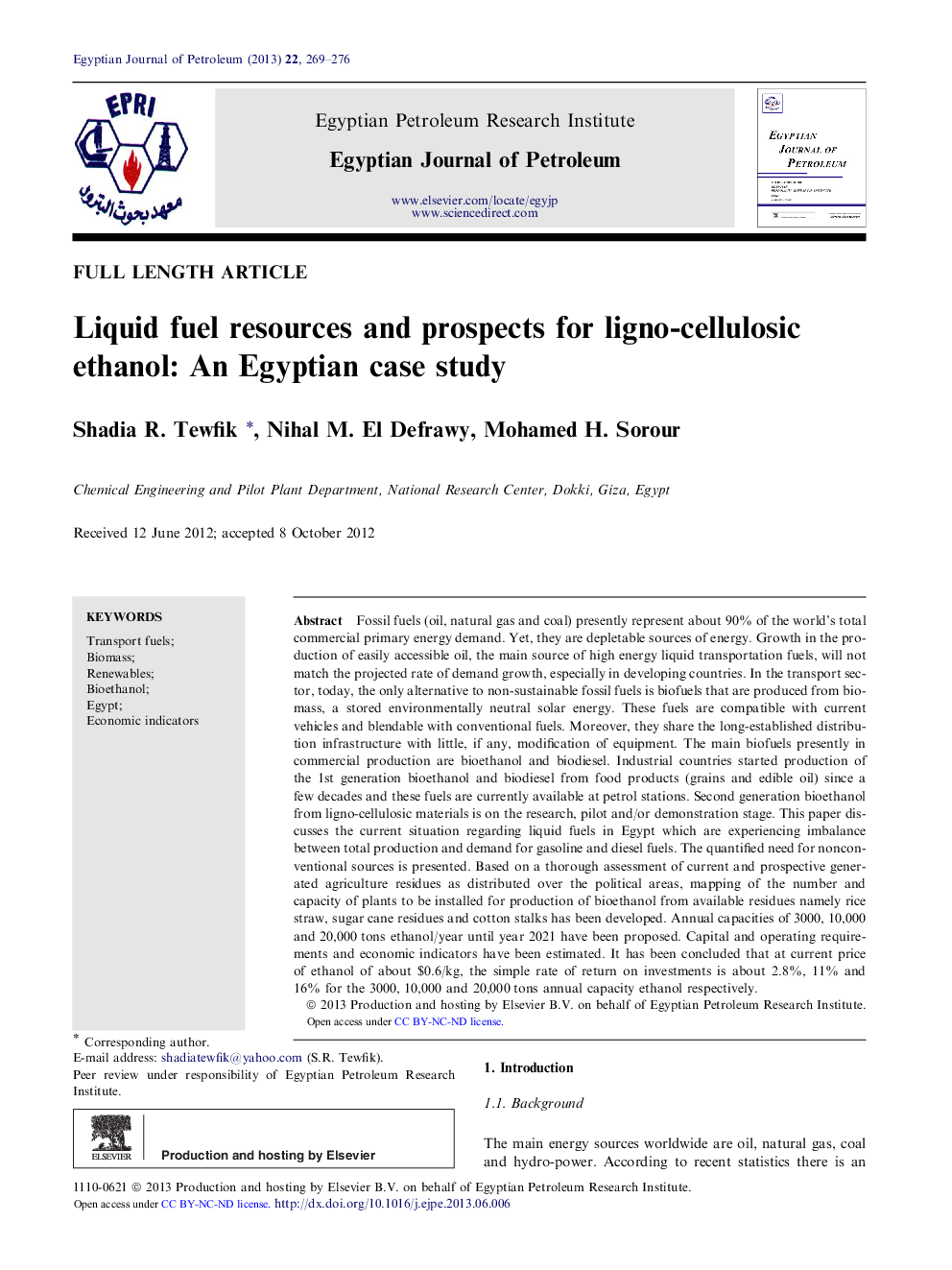| Article ID | Journal | Published Year | Pages | File Type |
|---|---|---|---|---|
| 1756825 | Egyptian Journal of Petroleum | 2013 | 8 Pages |
Fossil fuels (oil, natural gas and coal) presently represent about 90% of the world’s total commercial primary energy demand. Yet, they are depletable sources of energy. Growth in the production of easily accessible oil, the main source of high energy liquid transportation fuels, will not match the projected rate of demand growth, especially in developing countries. In the transport sector, today, the only alternative to non-sustainable fossil fuels is biofuels that are produced from biomass, a stored environmentally neutral solar energy. These fuels are compatible with current vehicles and blendable with conventional fuels. Moreover, they share the long-established distribution infrastructure with little, if any, modification of equipment. The main biofuels presently in commercial production are bioethanol and biodiesel. Industrial countries started production of the 1st generation bioethanol and biodiesel from food products (grains and edible oil) since a few decades and these fuels are currently available at petrol stations. Second generation bioethanol from ligno-cellulosic materials is on the research, pilot and/or demonstration stage. This paper discusses the current situation regarding liquid fuels in Egypt which are experiencing imbalance between total production and demand for gasoline and diesel fuels. The quantified need for nonconventional sources is presented. Based on a thorough assessment of current and prospective generated agriculture residues as distributed over the political areas, mapping of the number and capacity of plants to be installed for production of bioethanol from available residues namely rice straw, sugar cane residues and cotton stalks has been developed. Annual capacities of 3000, 10,000 and 20,000 tons ethanol/year until year 2021 have been proposed. Capital and operating requirements and economic indicators have been estimated. It has been concluded that at current price of ethanol of about $0.6/kg, the simple rate of return on investments is about 2.8%, 11% and 16% for the 3000, 10,000 and 20,000 tons annual capacity ethanol respectively.
